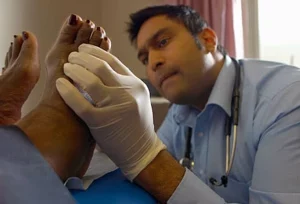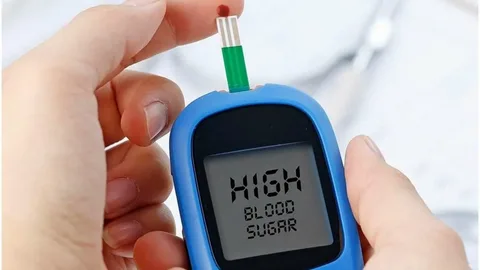Introduction: In the realm of diabetes care, maintaining optimal blood sugar levels is paramount to prevent serious health complications. Uncontrolled blood sugar levels can lead to severe issues such as stroke, heart disease, and nerve damage. This article aims to shed light on the crucial signs that your blood sugar might be out of control
Introduction:
In the realm of diabetes care, maintaining optimal blood sugar levels is paramount to prevent serious health complications. Uncontrolled blood sugar levels can lead to severe issues such as stroke, heart disease, and nerve damage. This article aims to shed light on the crucial signs that your blood sugar might be out of control and emphasizes the need for proactive measures.
Increased Thirst and Dehydration:
One common warning sign of elevated blood sugar is increased thirst. High glucose levels can lead to dehydration, causing a sense of perpetual thirst and even dizziness. Staying vigilant about hydration is essential to counteract this effect.

Image by: www.huffpost.com
Heightened Hunger Despite Eating:
The absence of energy from carbohydrates can result in increased hunger, even after consuming a meal. Recognizing your body’s signals and addressing heightened hunger is a key aspect of effective blood sugar management.
Dry Mouth and Hydration:
Dehydration, induced by elevated blood sugars, often manifests as dry mouth. Maintaining proper hydration becomes crucial in managing blood sugar levels and supporting overall health.
Frequent Urination and Kidney Activity:
Excess glucose in the blood prompts increased kidney activity to eliminate the surplus sugar. Frequent urination can be an indicator that blood sugar levels are not under control, emphasizing the importance of regular check-ups.

Photo by: www.pexels.com
Unexplained Weight Loss and Muscle Breakdown:
When the body resorts to breaking down muscle and fat for energy due to inadequate carbohydrate utilization, unintentional weight loss occurs. This process can lead to weakness, muscle fatigue, and even an increased risk of falls.
Fatigue from Inefficient Insulin Processing:
Inefficient insulin processing or insufficient insulin leads to sugar remaining in the blood, resulting in fatigue. Monitoring energy levels becomes crucial for effective diabetes management.

Image by: www.webmd.com
Blurry Vision and Eye Health:
High blood sugar levels can impact eye lenses, causing blurred vision. Timely management is essential to prevent further complications and maintain optimal eye health.
Tingling or Numbness Indicating Nerve Damage:
Nerve damage from elevated blood sugars can manifest as tingling or numbness, particularly in the hands or feet. Regular check-ups are vital to monitor nerve health and intervene when necessary.

Image by: www.webmd.com
Slow-Healing Sores and Circulatory Impact:
High blood sugars affect circulation and nerve function, leading to slow wound healing. Increased vulnerability to infections emphasizes the need for prompt attention to prevent complications.
Unusual Breath and Metabolic Indicators:
Individuals with uncontrolled diabetes may notice fruity or sweet-smelling breath. Treatment for other health Problems Monitoring breath odor can be a subtle yet crucial indicator of levels and overall metabolic health.
Comparative Table:
| Warning Sign | Indicator of Elevated Blood Sugar |
|---|---|
| Increased Thirst | Dehydration and Dizziness |
| Increased Hunger | Lack of Energy from Carbohydrates |
| Dry Mouth | Dehydration |
| Frequent Urination | Excess Glucose in the Blood |
| Unexplained Weight Loss | Breakdown of Muscle and Fat |
| Fatigue | Insulin Processing Issues |
| Blurry Vision | Impact on Eye Lenses |
| Tingling or Numbness | Nerve Damage |
| Slow-Healing Sores | Circulation and Nerve Impact |
| Unusual Breath | Fruity or Sweet-Smelling Breath |
Conclusion
Whether diagnosed with diabetes or not, recognizing these warning signs is crucial for proactive health management. Any sudden onset of symptoms should prompt a consultation with a primary care provider for a comprehensive assessment and tailored diabetes management plan.
















